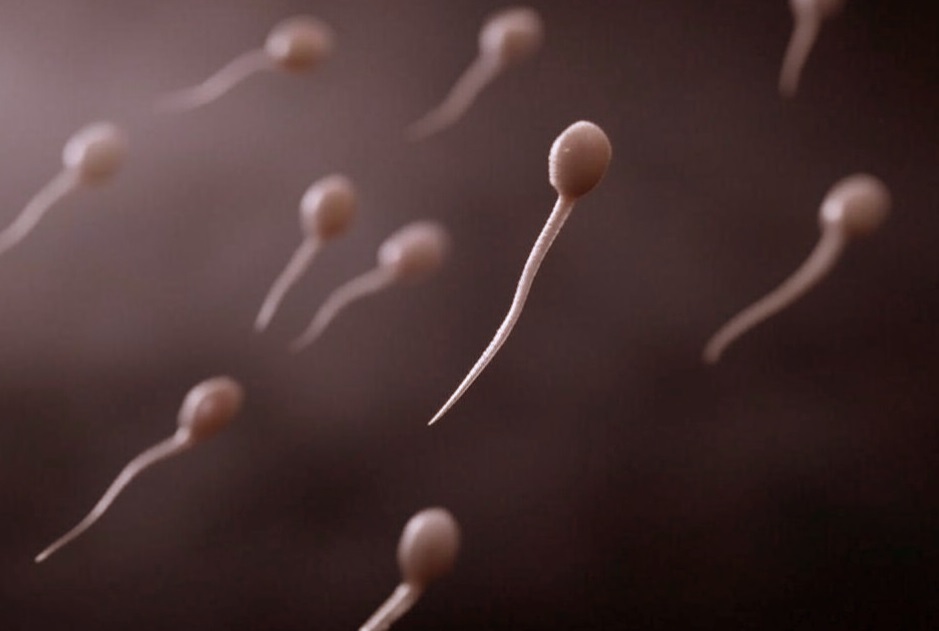Japanese Study Finds That COVID-19 Disrupts Spermatogenesis, Global Reproductive Rates at Risk
Nikhil Prasad Fact checked by:Thailand Medical News Team Jan 24, 2025 2 months, 3 weeks, 6 days, 6 hours, 14 minutes ago
Medical News: A groundbreaking study by researchers from Kobe University Graduate School of Medicine and Kobe City Medical Center West Hospital in Japan has revealed how COVID-19 disrupts spermatogenesis - the process of sperm production - potentially placing global reproductive rates at risk. As the world navigates the aftermath of the pandemic, this
Medical News report sheds light on alarming findings regarding male fertility.
 Japanese Study Finds That COVID-19 Disrupts Spermatogenesis, Global Reproductive Rates at Risk
Japanese Study Finds That COVID-19 Disrupts Spermatogenesis, Global Reproductive Rates at Risk
While the acute phase of the pandemic may be waning, COVID-19 remains a persistent health challenge. Alongside its respiratory and systemic effects, the virus has been implicated in affecting male reproductive health. According to the research team, led by Dr. Keisuke Okada, the virus's ability to invade testicular cells and disrupt hormonal and inflammatory pathways may have long-term implications for fertility worldwide.
Study Findings: How COVID-19 Affects Spermatogenesis
The study identified multiple mechanisms by which COVID-19 compromises male reproductive health. SARS-CoV-2, the virus responsible for COVID-19, gains access to testicular cells through the ACE2 receptor, widely expressed in Sertoli and Leydig cells, which are vital for supporting sperm development and testosterone production. By binding to these receptors, the virus disrupts the blood-testis barrier, an essential structure protecting sperm-producing cells from harmful substances and immune responses.
In addition to direct viral damage, the inflammatory response triggered by the infection plays a significant role. COVID-19's cytokine storm - a hyperactive immune response - leads to elevated levels of inflammatory markers like IL-6 and TNF-α. These cytokines interfere with testosterone production, resulting in hormonal imbalances that impact spermatogenesis. Furthermore, oxidative stress caused by the infection exacerbates cellular damage in the testes, reducing sperm count, motility, and quality.
Histopathological studies have provided further evidence of testicular damage. Postmortem analyses of COVID-19 patients revealed significant injury to seminiferous tubules, reduced Leydig cell counts, and inflammation. Alarmingly, SARS-CoV-2 viral particles were detected in testicular tissues, confirming the virus's direct involvement in testicular dysfunction.
Global Trends in Fertility and the Role of COVID-19
Even before the pandemic, global fertility rates were on a concerning decline. Rising infertility cases due to lifestyle factors, environmental pollutants, and delayed parenthood have already strained reproductive health in many countries. The COVID-19 pandemic has introduced a new layer of complexity by directly impacting male fertility.
Studies from multiple countries have reported significant declines in semen quality among men recovering from COVID-19. Parameters such as sperm concentration, total count, and motility showed notable reductions, particularly in patients
who experienced severe infections. Although some men exhibited partial recovery over time, the long-term effects remain uncertain.
The Broader Implications of the Study
This research has raised concerns about the potential for sustained disruptions to global reproductive health. With over 500 million confirmed cases of COVID-19 worldwide, the scale of its impact on male fertility could be substantial. Beyond individual fertility challenges, such widespread reproductive health issues could exacerbate declining birth rates in affected regions.
The study also highlighted the importance of addressing these challenges through targeted interventions. Strategies such as antioxidant supplementation, lifestyle changes to mitigate oxidative stress, and regular monitoring of reproductive health could support recovery in affected individuals.
Expert Insights and Conclusions
Dr. Okada and his team emphasized the complexity of COVID-19’s impact on male fertility. The virus’s ability to infiltrate testicular cells, induce systemic inflammation, and disrupt hormonal pathways underscores the multifaceted nature of its effects. While some of the observed changes may be reversible, the potential for long-term consequences cannot be overlooked.
Global reproductive health is already facing significant challenges, with many nations reporting declining fertility rates due to rising infertility cases and socioeconomic factors. The addition of COVID-19-related reproductive disruptions adds urgency to the need for further research and clinical vigilance.
The researchers concluded, "Continued studies and interventions are essential to mitigate the reproductive health challenges posed by the pandemic.
Understanding the long-term impacts of COVID-19 on male fertility will help shape future strategies for addressing similar threats from emerging viral infections."
The study findings were published in the peer-reviewed journal: Reproductive Medicine and Biology.
https://onlinelibrary.wiley.com/doi/10.1002/rmb2.12625
For the latest COVID-19 News, keep on logging to Thailand
Medical News.
Read Also:
https://www.thailandmedical.news/news/study-warns-that-covid-19-is-affecting-semen-quality
https://www.thailandmedical.news/news/breaking-covid-19-news-argentinian-scientists-warn-that-asymptomatic-sars-cov-2-infections-can-lead-to-persistent-oligonecrozoospermia-in-men
https://www.thailandmedical.news/news/covid-19-news-study-unveils-the-impact-of-inflammatory-cytokines-on-testicular-cells-in-covid-19-male-fertility-at-risk
https://www.thailandmedical.news/news/covid-19-news-groundbreaking-danish-study-shows-than-men-with-mild-covid-19-infections-still-ended-up-with-impaired-testicular-function
https://www.thailandmedical.news/news/texas-study-finds-that-sars-cov-2-literally-damages-the-testes-and-testicular-tissues-in-a-variety-of-way-and-also-the-blood-testes-barrier
https://www.thailandmedical.news/news/brazilian-study-reveals-surprising-link-between-sars-cov-2-nucleocapsid-protein-and-lower-testosterone-levels
https://www.thailandmedical.news/news/breaking-covid-19-news-turkish-study-finds-sars-cov-2-virus-in-penile-tissues-of-men-who-recovered-from-covid-19-implications-for-erectile-dysfunction
https://www.thailandmedical.news/news/breaking-brazilian-and-american-study-discovers-that-the-testes-of-males-could-be-viral-sanctuaries-for-the-sars-cov-2-virus
https://www.thailandmedical.news/news/bad-news-belgium-study-finds-that-males-who-had-covid-19-will-have-low-sperm-and-motility-levels-for-months-good-news-they-will-not-turn-into-drag-que
https://www.thailandmedical.news/news/breaking-columbia-university-study-confirms-presence-of-sars-cov-2-virus-in-human-semen-along-with-infected-males-having-low-sperm-count
https://www.thailandmedical.news/news/coronavirus-news-could-covid-19-create-a-whole-generation-of-virally-castrated-eunuchs-study-confirms-male-fertility-is-at-risk
https://www.thailandmedical.news/news/breaking-male-infertility-research-shows-that-sars-cov-2-coronavirus-may-indirectly-cause-testicular-damage-in-male-covid-19-patients-and-also-orchiti
https://www.thailandmedical.news/news/breaking-news-covid-19-infections-results-in-various-autoantibodies-that-target-proteins-associated-with-the-male-fertility
https://www.thailandmedical.news/news/covid-19-causes-testicular-inflammation-leading-to-testicular-tissue-damage-and-decreased-fertility
https://www.thailandmedical.news/news/who-warns-that-infertility-rates-are-rising-with-17-5-percent-of-individuals-globally-infertile-covid-19-at-play
